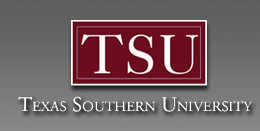Abstract
Ethics and corporate social responsibility are widely discussed in business and in the classroom. In fact, many mission statements for Colleges of Business include ethics as a major component. As corporations become increasingly aware of their impact on the environment, sustainability and social responsibility have become significant issues for many executives.
How to “teach” ethics and social responsibility is a dilemma that has been addressed with no definitive solution. Research shows that the traditional model of teaching and/or learning is outdated. In many disciplines, instructor/lecture and student note-taking are outdated methods of teaching. To increase student engagement and to reach a new generation of students, college courses must incorporate new models that lead to active engagement.
Service learning has been defined as “a form of experimental education in which students engage in activities that address human and community needs together with structured opportunities intentionally designed to promote student learning and development” (Johnson 2013). Based on the idea of service learning and the need for students to be socially responsible on campus, students in an MBA course were assigned a field project to support a university organization, the LU Green Squad.
The Green Squad focuses on interacting with the campus and surrounding community concerning environmental and sustainability efforts. The student/instructor team guided the organization through the goal-setting and execution process. Students acted as managers and executed plans to help the organization develop a plan for achieving its goals. The experiential component of the project enabled students to determine ideas that seem perfect in theory often do not work in the real world. Applying what they learned in the classroom in a real setting anchored students’ learning and produced a high level of engagement.
This paper reviews the learning experience of MBA students, studies the impact of the project on the client organization, and discusses the results of the project.
Recommended Citation
Flosi, Alicen; Dyson, Jeff; and Moss, Gisele
(2019)
"Social Responsibility: Preparing Students for the Real World,"
Southwestern Business Administration Journal: Vol. 18:
Iss.
1, Article 6.
Available at:
https://digitalscholarship.tsu.edu/sbaj/vol18/iss1/6
Included in
Business Administration, Management, and Operations Commons, Organizational Behavior and Theory Commons

